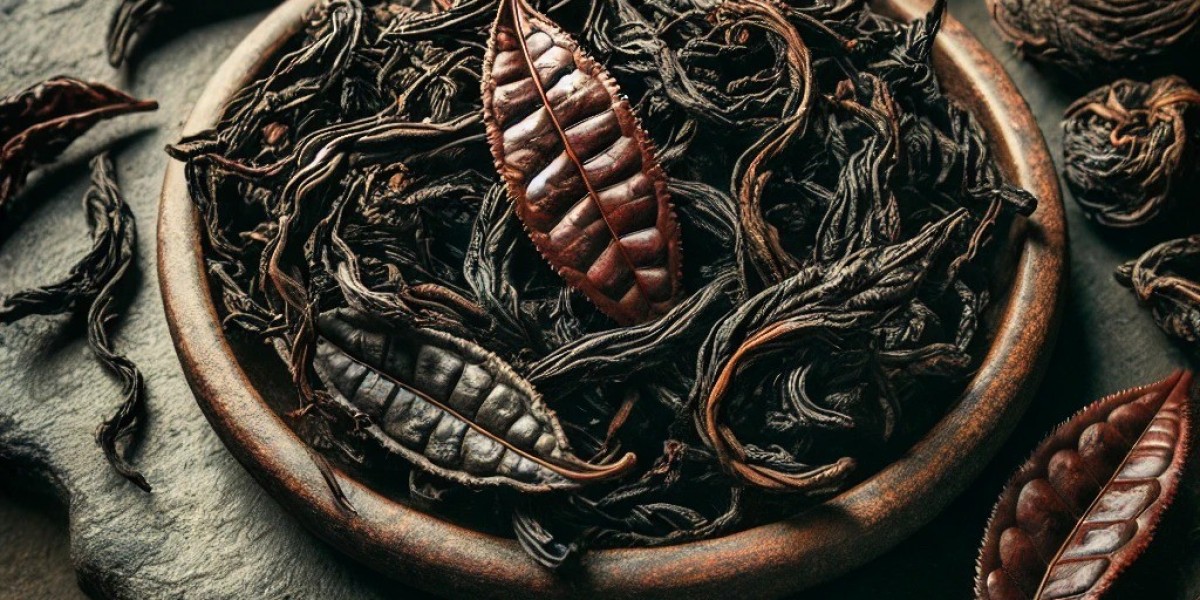Da Hong Pao and Shui Xian are two renowned types of oolong tea from the Wuyi Mountains in Fujian Province, China. Both teas are celebrated for their rich flavors and deep cultural significance, embodying centuries of Chinese tea cultivation and artisanal craftsmanship. This article explores the unique characteristics, historical background, and brewing techniques of these esteemed teas.
Da Hong Pao: The Emperor of Oolong Teas
Da Hong Pao Tea, meaning "Big Red Robe," is one of the most famous and revered Chinese teas. According to legend, the tea gained its name from an imperial tribute to the tea bushes that cured an emperor's mother. The emperor ordered that red robes be used to cover the bushes, marking them as imperial treasures. Today, Da Hong Pao refers to a carefully cultivated tea that originates from the cuttings of these ancient bushes.
The flavor profile of Da Hong Pao is complex and robust, characterized by a deep, rich body with notes of stone fruits, spices, and a subtle hint of floral sweetness. The lingering aftertaste, known as 'hui gan,' is particularly prized, offering a refreshing, sweet, and woody resonance that stays in the mouth long after drinking.
Shui Xian: The Narcissus of Wuyi
Shui Xian Tea, which translates to "Water Sprite," is another premium variety of Wuyi oolong tea. This tea is known for its floral aroma, which is reminiscent of narcissus flowers—hence its name. Shui Xian bushes are robust, with large, thick leaves that yield a tea rich in flavor with a smooth, mellow body.
The taste of Shui Xian is less intense than Da Hong Pao but no less refined. It features a harmonious blend of honey-like sweetness, floral notes, and a mineral complexity that reflects the rocky terroir of the Wuyi Mountains. Shui Xian is also known for its longevity in terms of brewing, capable of multiple infusions with a consistently gracious flavor.
Cultivation and Processing Techniques
Both Da Hong Pao and Shui Xian are made from leaves harvested from tea bushes grown in the mineral-rich soil of the Wuyi Mountains, an area known for its unique geological and climatic conditions. The process of making these teas involves several critical steps: withering, rolling, partial oxidation, and high-temperature roasting. The art of roasting, in particular, is crucial as it enhances the tea's aromatic compounds and develops its complex flavor profile.
The skill and experience of the tea master play a vital role in the processing of these teas, with each step carefully controlled to achieve the desired quality. The teas are generally harvested in the spring when the leaves are most tender and aromatic.
Brewing the Perfect Cup
To fully appreciate Da Hong Pao and Shui Xian, proper brewing techniques are essential. Both teas are best brewed using the Gongfu style, which involves multiple short infusions. Ideally, the water should be just below boiling (around 95°C or 203°F) to extract the full range of flavors without scalding the leaves.
A typical brewing session starts by warming the teapot and rinsing the leaves with hot water, which awakens their flavors. The first infusion is brief, only a few seconds, allowing the complexities of the tea to begin developing. Subsequent infusions can be slightly longer, each revealing new dimensions of taste and aroma.
Health Benefits and Cultural Importance
In addition to their exquisite flavors, both Da Hong Pao and Shui Xian are rich in antioxidants, which can help boost the immune system, reduce inflammation, and aid in digestion. Drinking these teas has also been associated with a calm, focused state of mind, enhancing both mental and physical well-being.
Culturally, these teas hold a place of honor in Chinese tea history. They are often used in ceremonial contexts and are highly regarded for their quality and heritage. Da Hong Pao and Shui Xian are not just beverages but symbols of the sophisticated art of Chinese tea making, reflecting centuries of history and tradition in every cup.
Whether you are a seasoned tea connoisseur or a newcomer to the world of oolong teas, exploring Da Hong Pao and Shui Xian offers a delightful journey through the rich tapestry of Chinese tea culture. Their complex flavors and storied past make them a fascinating study and a genuine pleasure to taste.



